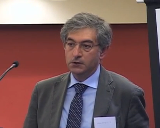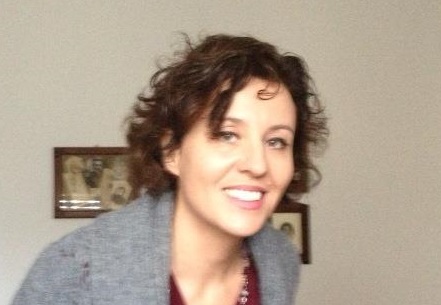Studying at the University of Verona
Here you can find information on the organisational aspects of the Programme, lecture timetables, learning activities and useful contact details for your time at the University, from enrolment to graduation.
Academic calendar
The academic calendar shows the deadlines and scheduled events that are relevant to students, teaching and technical-administrative staff of the University. Public holidays and University closures are also indicated. The academic year normally begins on 1 October each year and ends on 30 September of the following year.
Course calendar
The Academic Calendar sets out the degree programme lecture and exam timetables, as well as the relevant university closure dates..
| Period | From | To |
|---|---|---|
| Sem. 1A | Oct 1, 2008 | Nov 16, 2008 |
| Sem. 1B | Nov 17, 2008 | Jan 18, 2009 |
| Sem. 2A | Feb 23, 2009 | Apr 9, 2009 |
| Sem. 2B | Apr 15, 2009 | Jun 1, 2009 |
| Session | From | To |
|---|---|---|
| Sessione Invernale | Jan 19, 2009 | Feb 22, 2009 |
| Sessione estiva - tace dal 7 al 10 luglio | Jun 3, 2009 | Jul 31, 2009 |
| Sessione autunnale | Sep 1, 2009 | Sep 30, 2009 |
| Session | From | To |
|---|---|---|
| Sessione straordinaria invernale A.A. 2007-2008 | Mar 13, 2009 | Mar 13, 2009 |
| Sessione estiva 1° appello | May 29, 2009 | May 29, 2009 |
| Sessione estiva 2° appello | Jul 10, 2009 | Jul 10, 2009 |
| Sessione autunnale 1° appello | Oct 23, 2009 | Oct 23, 2009 |
| Sessione autunnale 2° appello | Dec 18, 2009 | Dec 18, 2009 |
| Sessione straordinaria invernale A.A. 2008-2009 | Mar 19, 2010 | Mar 19, 2010 |
| Period | From | To |
|---|---|---|
| Festività di Ognissanti | Nov 1, 2008 | Nov 1, 2008 |
| Festa dell'Immacolata Concezione | Dec 8, 2008 | Dec 8, 2008 |
| Vacanze di Natale | Dec 22, 2008 | Jan 6, 2009 |
| Vacanze di Pasqua | Apr 10, 2009 | Apr 14, 2009 |
| Festa della Liberazione | Apr 25, 2009 | Apr 25, 2009 |
| Festa del Lavoro | May 1, 2009 | May 1, 2009 |
| Santo Patrono - San Zeno | May 21, 2009 | May 21, 2009 |
| Festa della Repubblica | Jun 2, 2009 | Jun 2, 2009 |
| Vacanze estive | Aug 8, 2009 | Aug 16, 2009 |
Exam calendar
Exam dates and rounds are managed by the relevant Humanistic Studies Teaching and Student Services Unit.
To view all the exam sessions available, please use the Exam dashboard on ESSE3.
If you forgot your login details or have problems logging in, please contact the relevant IT HelpDesk, or check the login details recovery web page.
Should you have any doubts or questions, please check the Enrollment FAQs
Academic staff
 stefania.annechini@univr.it
stefania.annechini@univr.it
Berra Michela
 avv.michelaberra@libero.it
avv.michelaberra@libero.it
 0161602819
0161602819
 nicoletta.bersani@univr.it
nicoletta.bersani@univr.it
Bisleri Carla
Chinato Maria Grazia
 machinat@libero.it
machinat@libero.it
 mario.dalcorso@univr.it
mario.dalcorso@univr.it
 roberto.dallachiara@univr.it
roberto.dallachiara@univr.it
 francesca.feliziani@univr.it
francesca.feliziani@univr.it
 laura.fontecedro@univr.it
laura.fontecedro@univr.it
Forato Gianna
 gianna.forato@univr.it
gianna.forato@univr.it
Frighetto Roberta
 roberta.frighetto@univr.it
roberta.frighetto@univr.it
 annamaria.giarola@univr.it
annamaria.giarola@univr.it
 raffaele.morello@univr.it
raffaele.morello@univr.it
 mauro.niero@univr.it
mauro.niero@univr.it
Rigoni Antonella
 maria.soldati@univr.it
maria.soldati@univr.it
Study Plan
The Study Plan includes all modules, teaching and learning activities that each student will need to undertake during their time at the University.
Please select your Study Plan based on your enrollment year.
1° Year
| Modules | Credits | TAF | SSD |
|---|
2° Year activated in the A.Y. 2009/2010
| Modules | Credits | TAF | SSD |
|---|
3° Year activated in the A.Y. 2010/2011
| Modules | Credits | TAF | SSD |
|---|
| Modules | Credits | TAF | SSD |
|---|
| Modules | Credits | TAF | SSD |
|---|
| Modules | Credits | TAF | SSD |
|---|
Legend | Type of training activity (TTA)
TAF (Type of Educational Activity) All courses and activities are classified into different types of educational activities, indicated by a letter.
Services Organization (2010/2011)
Teaching code
4S01511
Credits
9
Language
Italian
Scientific Disciplinary Sector (SSD)
SPS/09 - ECONOMIC SOCIOLOGY AND SOCIOLOGY OF WORK AND ORGANIZATIONS
The teaching is organized as follows:
Modulo 1
Credits
6
Period
Sem. 1A, Sem. 1B
Academic staff
Carla Bisleri
Modulo 2
Learning outcomes
Module: 1 (prof.ssa Bisleri)
-------
The Course proposes the development of knowledge and study finalized to the acquisition of the useful theoretical contents for the analysis of the Organizations of service, within the vast area of the Public Administration.
The complexity and the vastness of the problems, disciplinary and of method they interest the nature and the operation of the organizations in a sector traditionally managed and faced through legislative prescriptions and institutional competences. The teaching program will allow to acquire ability of reading and individualization of the crucial knots of the to operate of these organizations, also with the purpose to know how to put his/her own professional contribution in the articulated management of the Corporate body responsible of a services to the various levels of intervention.
Module: 2 (prof. Gosetti)
-------
Objective of the course is the knowledge of the fundamental aspects of the organizations, and particularly of those countersigned by complexity and belonging to the area of the social and sanitary services. Object of close examination are also the principal useful organizational theories for the analysis and the understanding of the distinctive characteristics of the organizations. The course pays attention also to the recent developments of the organization of the social and sanitary services in Italy and foresees the illustration of methods and tools of organizational analysis, that allow to read the organization in its inside trials and in the relationships with the reference context. The course also foresees an individual job of application of the methods and tools of analysis of the organizations.
Program
Module: 1 (prof.ssa Bisleri)
-------
A) Illustration of the principal theories in sociological circle and psicosociale field, with the fundamental features of the study of service organizations: the strategic management, the conception of organization in psicosociologia (from the group to the organization) and in anthropology (organizational culture).
B) Typology of the services: functions, activity, personal, prevailing organizational models, relationship politics-administration, with particular reference to the innovations intervened in the management of the social, sanitary and educational sector. The relationship among social professions and organization.
C) prevailing organizational Typologies in the area of the services, with close examination of the circles of intervention of complexity and management, between institutional competences and organizational operation, areas of coordination and integration (Job for Projects, hierarchical and functional coordination, job of équipe, ec.).
D) Professionalism of the Social (attended, sent social, operational necessity) assistant inside the organizations of service in which work, typologies of role historically assumed in the carrying out of a complex and involving job among social question and answers organized to the needs of the people and the social community.
Texts for the examination:
A text to choice for every following (three total texts) point:
1) social actuality:
Bauman, Voglia di comunità, Laterza, Roma 2005
2) conceptual area:
Ferrante M., Zan S., Il fenomeno organizzativo, N.I.S., Roma 1994.
3) of theoretical reference:
Jaques E., Lavoro, creatività e giustizia sociale, Boringhieri, Torino 1990.
Crozier M., Friedberg., Attore sociale e sistema, Etas Libri, Milano 1978.
Paniccia R. M., Carli R., Psicosociologia delle organizzazioni e delle istituzioni, Il
Mulino, Bologna 1981.
Morgan G., Images. Le metafore dell'organizzazione, F. Angeli, Milano 1989.
3) or of culture and organization of the services:
Normann R., La gestione strategica dei servizi, Etas Libri, Milano 1985.
Olivetti Manoukian F., Produrre servizi, Il Mulino, Bologna 1998.
Capranico S., In che cosa posso servirla, Ed. Guerrini e Associati, Milano 1992.
It is opportune that the student sufficiently faces the Program of the Course with clear and systematic information on the competences, general and particular in sociosanitary services. Recommended: Forato G., Bisleri C., L'Operatore Sociale: preparazione ai concorsi e percorsi informativi nei servizi sociosanitari, assistenziali, educativi, Maggioli Ed., Rimini (4a edizione 2004)
Module: 2 (prof. Gosetti)
-------
The first part faces the introductory aspects to the understanding of the organizations and the organizational models, with particular reference to the concepts of organizational variable, structure, trial, integration, net, power and authority. The second part is devoted to the organizational characteristics that are assuming the social and sanitary services in Italy, with particular reference to the inter-organizational relationships and to the services integration. The third part deepens the principal organizational theories useful to the analysis of the organizations, with specific reference to those of service to the person. The fourth part faces some tools of organizational analysis, that every student has to experiment individually in a simulation of organizational analysis.
Texts for the examination:
G. Gosetti, M. La Rosa, Sociologia dei servizi. Elementi di organizzazione e programmazione, FrancoAngeli, Milano, 2006.
F. Franzoni, M. Anconelli, La rete dei servizi alla persona. Dalla normativa all’organizzazione, Carocci, Roma, 2003.
G. Bonazzi, Come studiare le organizzazioni, il Mulino, Bologna, 2002.
Examination Methods
Module: 1 (prof.ssa Bisleri)
-------
Oral exam.
Module: 2 (prof. Gosetti)
-------
The examination, sustained in oral form, foresees the knowledge of the suitable texts to the preceding point. The close examination of an organizational circle, that will be discussed in the final examination, are to be arranged with the teacher about formality and context of analysis.
Type D and Type F activities
Modules not yet included
Career prospects
Module/Programme news
News for students
There you will find information, resources and services useful during your time at the University (Student’s exam record, your study plan on ESSE3, Distance Learning courses, university email account, office forms, administrative procedures, etc.). You can log into MyUnivr with your GIA login details: only in this way will you be able to receive notification of all the notices from your teachers and your secretariat via email and soon also via the Univr app.
Student mentoring
Linguistic training CLA
Gestione carriere
Practical information for students
Documents
| Title | Info File |
|---|---|
|
|
pdf, it, 325 KB, 02/05/23 |
|
|
pdf, it, 212 KB, 02/05/23 |
|
|
pdf, it, 131 KB, 02/05/23 |
Graduation
Documents
| Title | Info File |
|---|---|
|
|
pdf, it, 99 KB, 13/10/23 |
|
|
pdf, it, 101 KB, 10/04/24 |
List of theses and work experience proposals
| theses proposals | Research area |
|---|---|
| Proposta tesi | Various topics |
Assistente Sociale
Comune e Università di Verona collaborano per la formazione alla professione di assistente sociale.
Professione Assistente Sociale
Pagina aggiornata il 18/1/2022
Stage e Tirocini
Le attività̀ di tirocinio degli studenti si svolgono presso strutture esterne, convenzionate con l’Università degli Studi di Verona ai sensi delle vigenti disposizioni in materia. Nelle strutture esterne gli studenti svolgono le attività di tirocinio sotto la responsabilità di un assistente sociale (Tutor-supervisore), appartenente a dette strutture, coordinato a sua volta dal responsabile del tirocinio presso il Corso di Studio.
In assenza di un assistente sociale, operante nella struttura esterna, il Collegio didattico, per quanto di competenza, decide, su proposta dei responsabili del tirocinio, in ordine alle condizioni per l’effettuazione o la prosecuzione delle attività di tirocinio degli studenti interessati. Le attività di tirocinio sono obbligatorie per almeno 450 ore.
Il Collegio didattico, in deroga alle disposizioni del presente articolo, può consentire a studenti che si trovino in particolari condizioni, in specie se disabili, lavoratori o impegnati in organismi collegiali dell’Università degli Studi di Verona, di non ottemperare in parte all’obbligo di frequenza alle attività di tirocinio, predisponendo forme alternative di tirocinio, anche tramite supporti telematici e multimediali interattivi.
I responsabili delle attività di tirocinio presso il Corso di Studio, anche avvalendosi di appositi collaboratori o tutori esterni, accertano la presenza degli studenti presso le rispettive strutture. A tal fine utilizzano un apposito libretto di frequenza per ciascuno studente.
Al termine dell’attività di tirocinio, lo studente deve presentare una relazione scritta al responsabile di tale attività presso il Corso di Studio. Lo studente elabora la relazione scritta, controfirmata dal Tutor-supervisore. La relazione finale viene valutata dal responsabile del tirocinio presso il Corso di Studio e deve tenere conto degli obiettivi prefissati dal Collegio didattico.
La valutazione viene attribuita al tirocinio nel seguente modo: sufficiente = 1; buono = 2; ottimo = 3; eccellente = 4 e verrà aggiunta alla media dei voti del curriculum al momento della discussione della tesi.
Gli Uffici della Direzione Didattica e Servizi agli Studenti predispongono la documentazione necessaria allo svolgimento delle attività̀ di tirocinio, comprese attestazioni e certificazioni.
Nel caso in cui lo studente partecipi a programmi di mobilità internazionale, le attività̀ di tirocinio vengono regolamentate come segue:
A – Lo studente svolge il Tirocinio presso la sede estera.
Se lo studente svolge il Tirocinio all’estero si ritengono assolti gli obbligo relativi al Laboratorio se:
- - lo studente aggiorna il proprio docente/tutor con brevi relazioni mensili da inviare mezzo mail, sull’andamento del lavoro svolto presso la sede estera;
- - produce una relazione finale completa del tirocinio svolto.
La valutazione finale del laboratorio di guida al tirocinio sarà̀ effettuata da parte del tutor del laboratorio sulla base della relazione dello studente tenendo conto della eventuale valutazione da parte del supervisore estero.
B – Lo studente non svolge il Tirocinio presso la sede estera.
Se lo studente non svolge il Tirocinio nella sede estera e lo deve fare al rientro:
lo studente effettua uno/due incontri individuali iniziali con il docente/tutor in cui predisporre quanto necessita per l’avvio del tirocinio e nei quali verranno forniti materiali, griglie ed eventuali testi di riferimento;
invia brevi relazioni mensili sull’andamento del tirocinio che sarà svolto in Italia al di fuori del periodo in cui si tiene il laboratorio di guida al tirocinio;
produce la relazione finale completa del tirocinio svolto”.
- Tutte le informazioni in merito agli stage per futuri studenti sono disponibili alla pagina Stage e tirocini.
- Tutte le informazioni in merito agli stage per studenti iscritti sono pubblicate in MyUnivr - come fare per - stage e tirocini.
- Tutte le informazioni in merito agli stage per le aziende sono disponili alla pagina Stage e tirocini per azienze.














